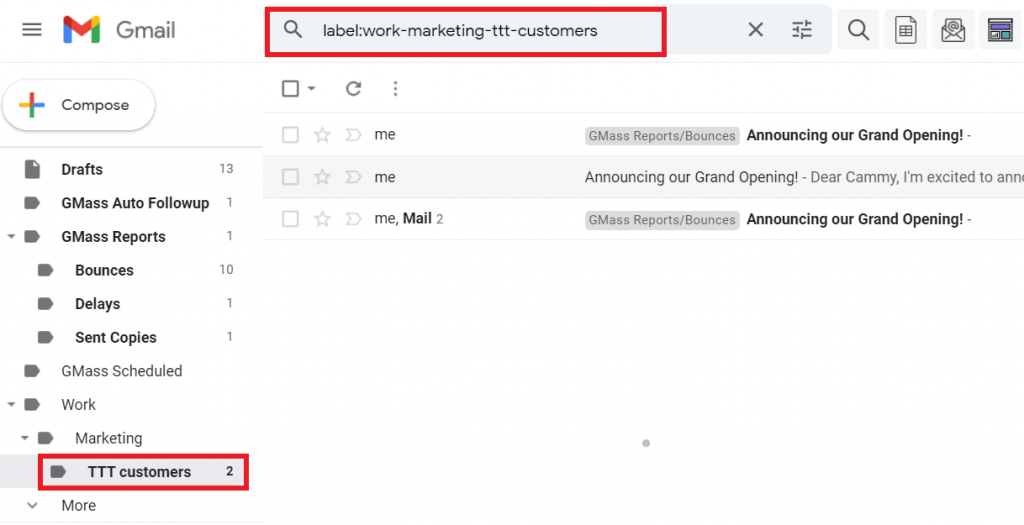New Guide To Choosing A Hematologist Email list
New Guide To Choosing A Hematologist Email list
Blog Article
What Are The Important Things I Need To Consider When Buying An Email List For Cpa?
When purchasing a CPA (Certified Public Accountant) email list, it's crucial to look at a few key elements to ensure the list is of the highest quality, compliant to legal standards, and relevant to your business goals. The most important thing to consider is: 1. Data Accuracy and Quality
Check whether the origin of the information is reliable. Trustworthy providers typically collect information from reliable sources, such as professional directories and trade associations. Beware of lists created by scraping or other unreliable methods, since they may contain outdated or incorrect details.
Verification Process: Ensure that the email list is valid and recently updated. This helps reduce bounce rates and makes sure you are reaching active, valid email addresses. CPAs have a reputation for changing their positions and companies frequently, therefore it is crucial to inquire about how often they are updated.
Segmentation: A good CPA database should offer segments to choose from. This could include locations (city or state) as well as specializations in the industry (e.g. auditing, financial planning, taxation) years of experience, and firm size. Your advertising campaigns can be more relevant by utilizing targeted targeting.
2. Legal Regulations
Data Privacy Laws : Ensure compliance with local data privacy laws including the California Consumer Privacy Act and the General Data Protection Regulation. Lists should contain only legal emails.
Conformity with the CANSPAM Act The list that is used to create U.S. commercial email campaigns should be compliant with the CANSPAM Act. This includes opt-out options and refraining from deceptive topics or contents. Non-compliance can lead to fines and legal issues.
Sign up for Consent. Make sure you have email addresses through opt-in permission, i.e. recipients agreeing to receive emails. This will reduce the likelihood of receiving spam complaints and increase engagement.
3. Provider Reputation
Reputable Provider: Examine the reputation of the company extensively. Check out reviews, testimonials from customers and reviews to get an idea about what customers who have used the service previously experienced. Established firms are more likely to offer accurate, high quality data.
Transparency: The company should be transparent about how the data was gathered and the frequency at which it is updated. It's a warning sign when a provider doesn't be able to clearly explain their methodology.
Customer Support: Reliable customer support is important in case you require assistance with list customization or troubleshooting issues, or if you need help understanding the rules of compliance. Support can be a time-saver and save effort in the campaigning process.
4. Cost and Return on Investment
Pricing Models. Different providers have different pricing models. Some charge by contact, while some offer the option of a subscription or flat rate. Examine the costs in relation to the expected return on investment and then weigh the price against the quality of the list.
Ask the provider if they offer a refund policy or replacement policy in case a large percentage of the email addresses are invalid or inactive. A guarantee can give you peace of mind.
Cost is not the same as. Value: Don't be focusing solely on the price. It may be tempting to buy a cheaper list, however if its quality isn't good and the result is low participation as well as high bounce rates. Make sure to choose lists that are worth it in terms of data precision and segmentation.
5. Data Ownership and Usage
Is it a single-use or multiple-use? Find out if you are buying the list only for one use or if the information is yours and you can utilize it for ongoing campaigns. Although a list for single-use is cheaper, owning your list lets you run longer-term campaigns.
Shared vs. Exclusive lists: Determine whether the email list is exclusively yours or shared with other buyers. shared lists: Determine whether this email list belongs to you exclusively or is shared with several buyers. Shared email lists can result in audience fatigue as recipients receive a flood of emails from other companies.
6. Data Integration and Format
CRM Compatibility: Ensure that the list is delivered in a format that is compatible with the CRM software or marketing email, such as CSV or Excel. The data can be easily transferred and managed.
Ease-of-Use: Consider the ease with the data you can segment and managed, as well as integrated into your system. An organized list will enable targeting and personalization to be more efficient.
7. Ethical Considerations
Relevance of Content - CPAs have an extremely busy schedule, which is why it's essential to send material that's useful and adds value. Sending irrelevant messages can harm your reputation and lead to more spam complaints.
Avoid sending too many emails: Be aware of how often you send emails to the people on your list. Unsubscriptions could result, spam complaints or even unsubscribes. This could negatively impact the reputation of your sender.
Conclusion
To ensure that your investment will be profitable, you should consider the quality of data and legal compliance when purchasing an email list from an CPA provider. Targeting, segmentation and ethical behavior will increase engagement and maximize the return on investment while maintaining your brand's image. Have a look at the most popular cpa email list for site examples.
What Aspects Should I Consider When Purchasing Data Appending Software?
To decide if a data appending company is suitable for your needs It is essential to consider multiple aspects. The service must improve your existing data and maintain compliance, accuracy and ethical standards. Data appending involves enriching your database by adding missing or additional data such as email addresses, phone numbers or other demographic data. The following are some important aspects to take into consideration when purchasing data appending services:1. Data accuracy and quality
The source of the data: Make sure that the company attaching data is using high-quality, reliable sources, like public records or opt-in directories. Trustworthy companies typically utilize legitimate sources of data. The data appended should be both accurate as well relevant.
Verification Process: Check if the provider has a robust procedure for validating and verifying the appended data. This ensures that the data is up-to-date relevant, precise and appropriate for your needs. Providers must provide regular clean-up and updates to the data as part of their offerings.
Match Rate: Providers have various match rates. This is a reference to the extent to which your records can be enhanced with new data. If you want to achieve accuracy, don't sacrifice quality to get a greater match rate.
Customization If you have particular needs, be sure that the company you choose to use offers custom appsend services for data. This can include adding various kinds of data, such as demographics and firmographic data as well as information about behavior.
2. Data Security and Privacy
Compliance with Regulations – Data appending is a service that handles sensitive personal data. Therefore, it's crucial to ensure compliance with privacy laws like the California Consumer Privacy Act and General Data Protection Regulation. Data appended must be collected, used, and processed legally to stay clear of fines.
Consent management: Verify that the information you're including comes from those who have given their explicit consent to share their information. Do not choose data providers that employ unsound practices and violate users' privacy.
Data Security: Ensure that the provider is using rigorous security measures for your database as well as the data to be added. This includes secure data transfer protocols along with encryption, access, and controls.
3. Provider Reputation
Reputable Vendors: Select an organization with a solid reputation for offering accurate and compliant services. You can evaluate their past performance by reviewing testimonials, case studies, and reviews. A reputable vendor is more likely to provide top-quality services and guarantee legal conformity.
Specialization by industry Some service providers are focused on certain industries, for example healthcare, retail or finance. Choose a company with the expertise and knowledge in your specific field if you have a business that operates in a similar market. They may be able to provide tailored solutions that meet your particular needs.
4. Return on Investment and cost (ROI)
Pricing Models. Most data appending services offer different pricing models. They may offer a flat cost for a batch update or base their charges on the number of records. Make sure you know how the cost structure aligns with your own budget. Beware of cheap alternatives that could have weak information.
Calculate the return on investment potential that comes from incorporating information. Good services will increase engagement, increase conversion rates, and overall performance of marketing. Compare the costs of the service with the benefits you expect from having more accurate and actionable information.
5. Types of Data, Appending Options, and Other Options
Types of data: Think about the types of data that you would like to add to your database. The most common types are:
Email addresses are essential to marketing via email campaigns.
Phone Numbers: Essential for customer outreach and sales Support.
Demographic information can be used to segment and focus marketing.
Firmographic data is essential for B2B marketers who want to reach businesses based on revenue, size of employees, or industry.
Social Media Profiles - Certain service providers allow you to attach handles from social media. These can assist in digital and social networking marketing efforts.
6. Data Integration and Format
Compatibility: Ensure the appended data is provided in a format that works with your customer relationship management (CRM) system or marketing automation software or any other tool you employ. CSV, Excel and API integration are all acceptable formats to import data.
Enrichment and Data Cleansing A reliable service should also provide data cleaning services in the appending process. The appending process includes the correction of incorrect data as well as the removal of duplicates and removing old records. Data enrichment doesn't just provide new information however it also improves the quality.
7. Ethical aspects
Transparency - The provider must be upfront about where and how the data was taken. Ethical data appending services will have strict policies on the source of data and its use, ensuring that the information is collected through legally-approved and transparent methods.
Effect on Engagement Take note of the impact of adding contact information like emails and phone numbers shouldn't cause spam or intrusive practices. Make sure to use the information appended and ensure that you follow the best practices in regards to outreach, opt-out choices, and the privacy of consumers.
Conclusion
When choosing data appending companies, consider the following: data quality legal conformity, data quality, and the reputation of the provider. Prioritize data appending services that offer secure, verified data that is compliant with privacy regulations such GDPR as well as CCPA. Take into consideration the long-term returns of investment in precise, enhanced data. The addition of data can enhance your business and marketing performance by selecting a reliable supplier. See the expert data appending services for site examples.